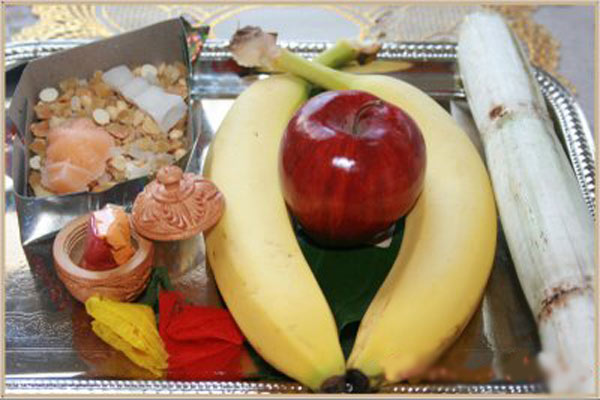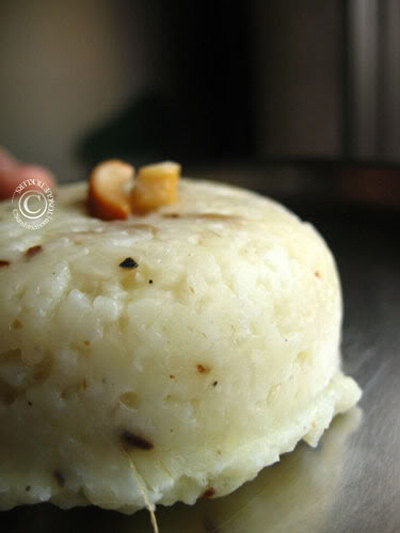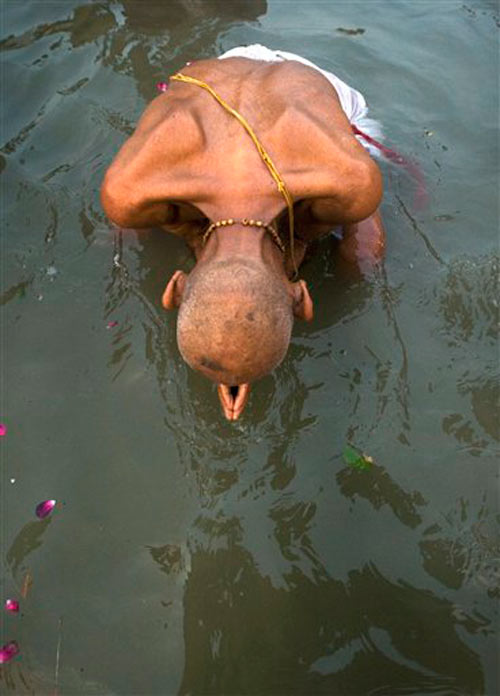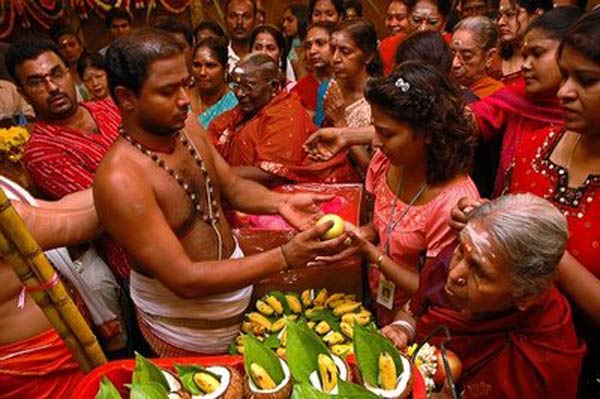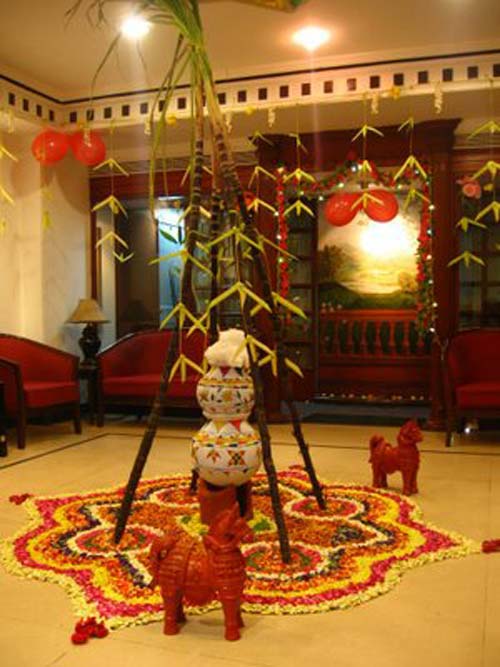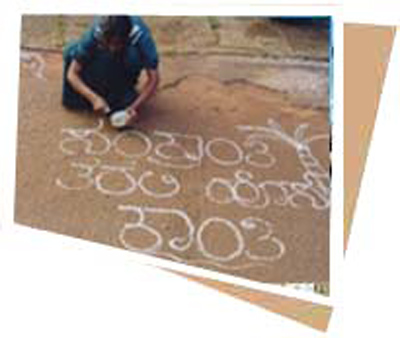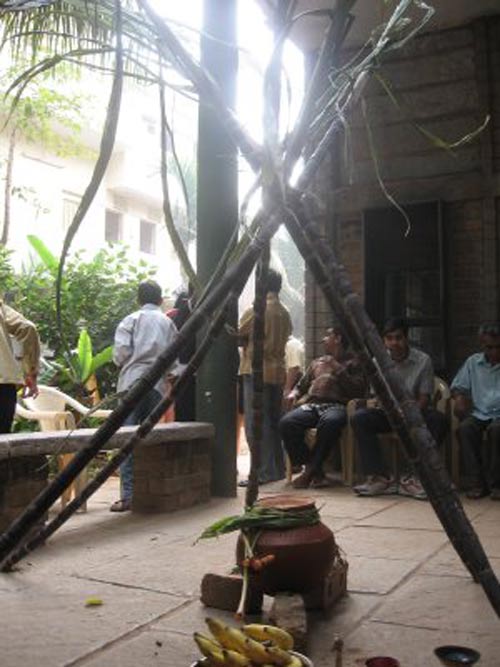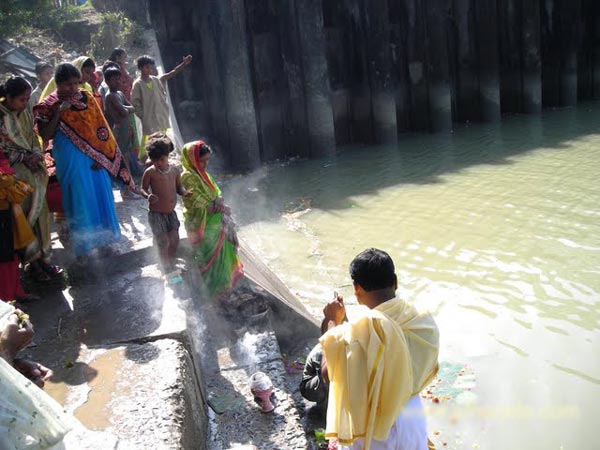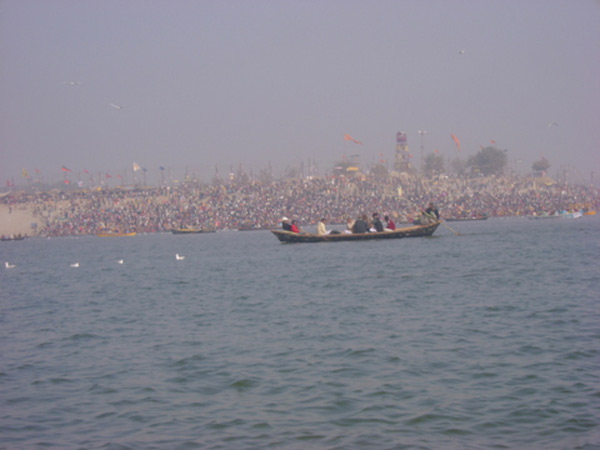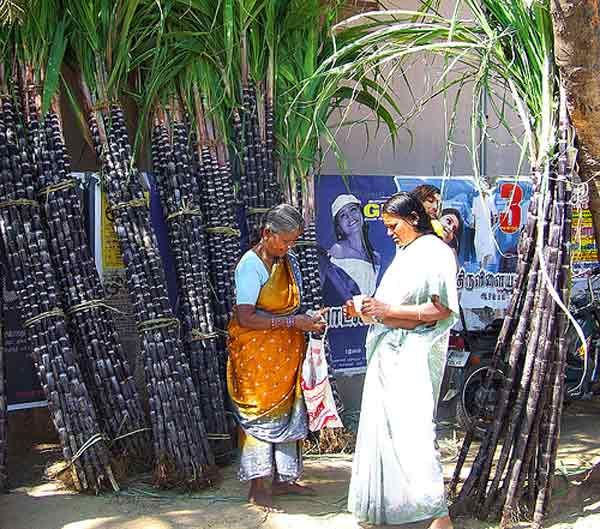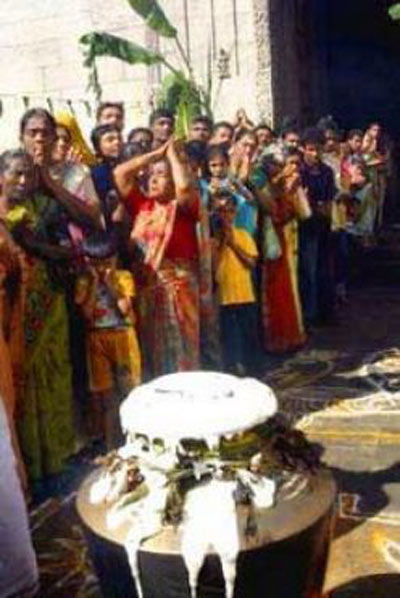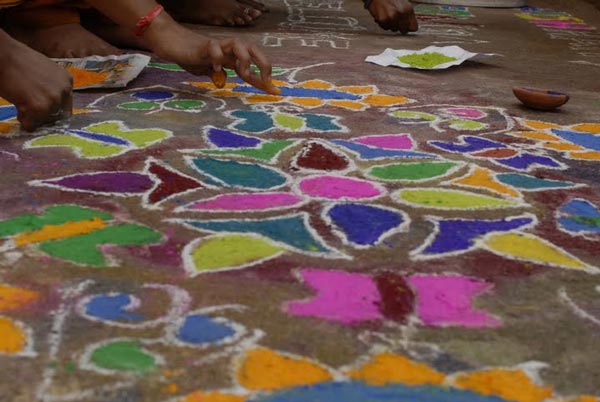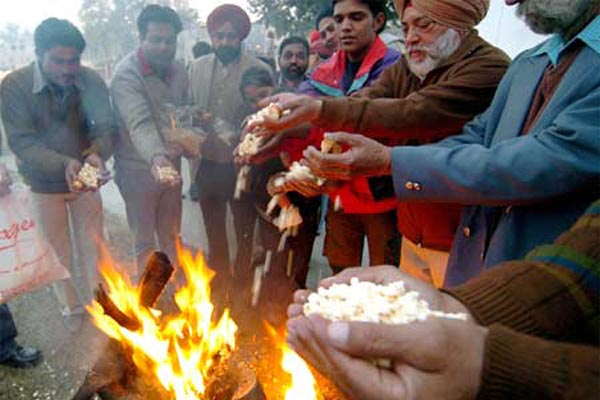Makar Sankranti Festival
Makar Sankranti |
About: |
|
In Karnataka, the festival is marked by visiting one's friends and relatives to exchange greetings, and by the preparation of a dish called Ellu (made with sesame seeds, coconuts, sugar blocks, etc). A common custom found across Karnataka is the exchange of sugarcane pieces and Ellu with one's neighbors, friends and relatives. In Karnataka, Pongal is known as 'Sankranti', and cows and bullocks are gaily decorated and fed 'Pongal'- a sweet preparation of rice. Special prayers are offered. In the evening, the cattle are led out in procession to the beat of drums and music. In the night a bonfire is lit and the animals are made to jump over the fire. Makar Sankranti is marked by men, women and children wearing colorful clothing; visiting near and dear ones; and exchanging pieces of sugarcane, a mixture of fried til, molasses, pieces of dry coconut, peanuts and fried gram. On this auspicious day, people in Karnataka distribute Yellu and bella Sesame seeds and Jaggery and greet with the words "Ellu bella thindu, Olle Maathu Aadu" Eat sesame seeds and speak only good.. The significance of this exchange is that sweetness should prevail in all the dealings. The harvest festival of Pongal is celebrated in different parts of the country but variations mark the way in which they are celebrated. In Karnataka the Festival of Pongal is celebrated with a lot of revelry. It is also known by the name of Sankranti. Friends and relatives visit one another to exchange greetings.A special dish is prepared on the occasion of Pongal in Karnataka. The ingredients of this sweet dish Ellu are coconut, sesame seeds and sugar. It is customary for the people to exchange this sweet dish with friends, relatives and neighbors. It is a token to show that hence forth the relationship will be as sweet as Ellu with no bitterness involved. |
Location info: |
| Address:Karnataka,India |
| District: Karnataka |
| Best time to visit: 14th January. |
Climate/Weather: |
| During winter temperatures range from 32 degrees Celsius to below 20 degrees Celsius,Summer Average temperature is 34 degrees Celsius |
History: |
| Sankranti is considered a Deity. According to a legend Sankranti killed a demon named Sankarasur.The day followed by Makar sankrant is called Kinkrant or Karidin. On this day, the female deity (devi) slayed the demon Kinkarasur. |
Importance: |
|
The northward movement of the sun begins on this day. The period from Karkasankrant (the passage of the sun into the zodiac sign of Cancer) to Makarsankrant is called the dakshinayan. A person who dies in the dakshinayan period has a greater chance of going to Yamalok (southward region), than one who dies during uttarayan (northward revolution).Importance from the point of view of spiritual practice: On this day, from sunrise to sunset, the environment has more chaitanya (Divine conscious-ness); hence those doing spiritual practice can benefit from this chaitanya. |
Method of Celebration: |
| Benefit of highest merit acquired by a Holy dip on the day of Makarsankrant.The time from sunrise to sunset on Makar-sankrant is auspicious. A Holy dip during this period carries special significance. Those who take a Holy dip in the rivers Ganga, Yamuna, Godavari, Krushna and Kaveri at the Holy places situated on the banks of these rivers acquire the highest merit.
Offering: Importance of a gift: What should be gifted: |
Culture of Festivities: |
| Makar Sankranti is marked by men, women and children wearing colorful clothing; visiting near and dear ones; and exchanging pieces of sugarcane, a mixture of fried til, molasses, pieces of dry coconut, peanuts and fried gram. On this auspicious day, people in Karnataka distribute Yellu and bella (Sesame seeds and Jaggery) and greet with the words "Ellu bella thindu, Olle Maathu Aadu" (Eat sesame seeds and speak only good). The significance of this exchange is that sweetness should prevail in all the dealings. |
How to reach? |
| Nearest Railway Station: |
| Nearest Airport: |
| Road Transport: |
Hotels/Lodge/Accommodation: |
Help Line/Phone Number: |
| Police Station:100 |
| Nearest Hospital: |
| Society/Community Phone Number: |
| Link: |

